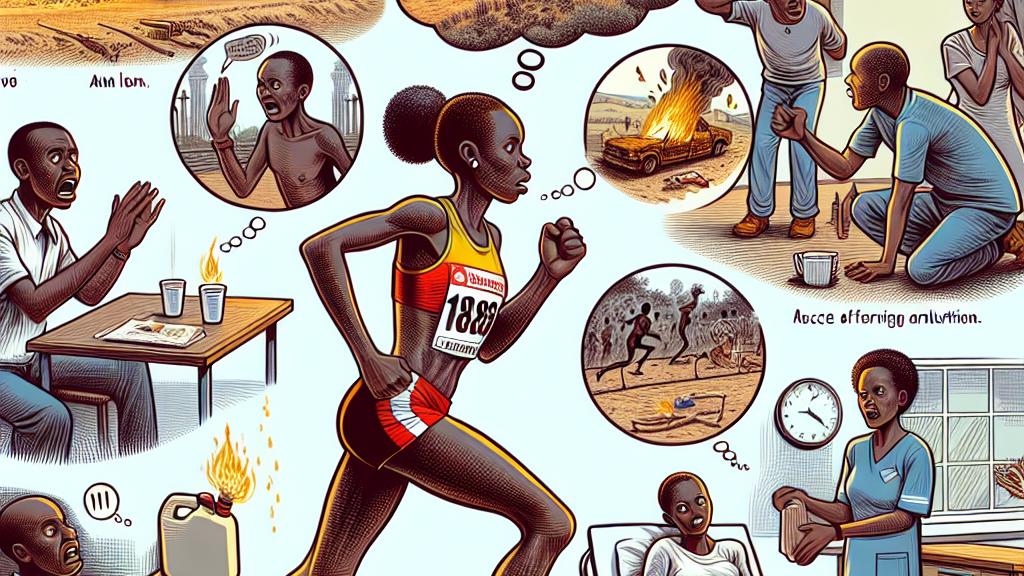Tragic Flame: The Heartbreaking Story of Rebecca Cheptegei
Overview
- Rebecca Cheptegei, a Ugandan marathon runner, tragically died due to domestic violence.
- Set on fire by her ex-boyfriend, her death raises alarm on athlete safety.
- Increasing violence against female athletes in Kenya calls for urgent action.

A Shocking Incident in Kenya
In a deeply tragic event in Kenya, Rebecca Cheptegei, a 33-year-old marathon runner from Uganda, lost her life following a horrific attack by her ex-boyfriend, Dickson Ndiema. On September 1, 2024, upon returning from church, Cheptegei was involved in a heated argument with Ndiema, centering around a piece of land that she had bought to be closer to athletic training facilities. In a moment of unspeakable violence, Ndiema poured petrol over her and set her ablaze. Despite the rapid response of local authorities and her subsequent treatment at the Moi Teaching and Referral Hospital, where doctors battled to save her life, Cheptegei succumbed to her injuries just days later due to extensive burns covering 75-80% of her body. Her tragic fate not only tears at the hearts of her family and fans but also raises critical questions about the safety and rights of female athletes.
A Pattern of Violence Against Female Athletes
Cheptegei’s heartbreaking death reflects a disturbing trend in the ongoing violence against women, particularly athletes in Kenya. Within recent years, the sports community has witnessed several alarming cases, including the murders of fellow athletes Agnes Tirop and Damaris Mutua, both victims of domestic violence. Tirop was found murdered in 2021, and authorities identified her husband as the primary suspect. The ongoing investigation into Mutua's death continues to spotlight an epidemic of gender-based violence that permeates Kenyan society. According to studies, one in three women in Kenya has faced some form of domestic violence, and the haunting reality is that many victims suffer in silence, often feeling trapped due to societal stigmas and inadequate legal protections. This grim pattern signifies the urgent need for comprehensive change to protect the rights and lives of women both inside and outside the sporting arena.
Call for Greater Awareness and Action
In light of Cheptegei's death, the outcry for justice and change is louder than ever. Advocacy groups, including the Uganda Athletics Federation, have condemned the violence and called for immediate action to combat gender-based violence in all its forms. They emphasize the need for policies that not only punish abusers but also provide support and protection for victims. Community activists are advocating for educational programs to raise awareness about domestic violence and to empower women to seek help and refuge when needed. Cheptegei’s tragic story serves as a critical reminder of the dangers many women face, especially those in high-profile environments like athletics. It is a clarion call for society to unite in demanding justice, implementing protective measures, and creating safe spaces where women can thrive without fear of violence. Only through a collective effort can we hope to change the narrative and ensure that no more lives are lost to such senseless acts of domestic violence.

Loading...